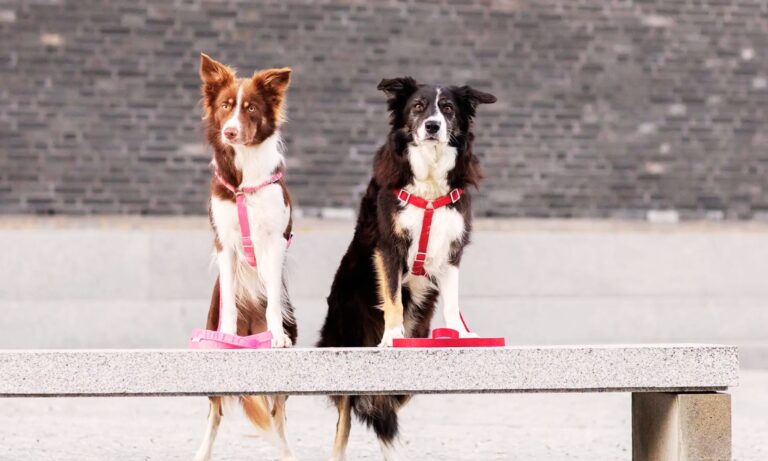| Summary: Kittens are generally easier to care for than puppies due to lower energy levels, less maintenance, and easier litter training. However, puppies can be more rewarding with proper training and stronger bonds. Ultimately, the decision depends on your lifestyle—kittens are more low-maintenance, while puppies require more time and energy. |
As someone who’s had both a kitten and a puppy in the past, I often get asked this question: Are kittens easier than puppies? Well, after raising both, I can confidently say that there’s no one-size-fits-all answer.
However, there are some noticeable differences between the two that can make one seem easier than the other, depending on your lifestyle, preferences, and patience levels.
In this article, I’ll break down my experiences and observations to give you a clearer idea of what to expect when bringing a kitten or a puppy into your home. By the end, you’ll have a better understanding of which pet might be a better fit for you. For insights on whether Pomeranians should wear a collar, including considerations for safety and alternatives, check out this informative article.
Blog Highlights
TogglePersonal Opinion: My Experiences with Kittens and Puppies
Before diving into the pros and cons of kittens versus puppies, let me share a little about my experience with both. When I got my first kitten, I thought it would be easy. After all, they’re small, cute, and tend to nap a lot. But I quickly realized that kittens can be just as demanding as puppies—just in different ways.
Similarly, when I brought home my first puppy, I was overwhelmed by how much energy they had. But unlike a kitten, a puppy requires more attention, training, and exercise to grow into a well-behaved adult.
In this article, I’ll walk you through the different aspects of raising each, so you can decide which one suits your lifestyle better. For a comprehensive guide on what kind of harness is best for a Pomeranian, including comfort and safety tips, check out this article.
FAQ Table: Are Kittens Easier Than Puppies?
| Question | Answer |
| 1. Are kittens less work than puppies? | Yes, kittens require less attention, as they are easier to litter train and don’t need walks like puppies. |
| 2. Which is easier to train, kittens or puppies? | Puppies are easier to train for basic commands, while kittens are more independent but require patience for training, especially scratching. |
| 3. Do kittens have lower energy than puppies? | Generally, yes. Kittens nap frequently and have short bursts of energy, while puppies are more energetic and need regular exercise. |
| 4. Which pet is more expensive to raise? | Puppies tend to be more expensive, with higher food costs, vet visits, and training expenses. |
| 5. Which lives longer, kittens or puppies? | Kittens typically live longer, averaging 12-16 years, compared to puppies whose lifespan varies based on breed. |
1. Care and Maintenance: Are Kittens Less Work?
When I first got my kitten, one of the things I loved was how little maintenance she required compared to a puppy. Sure, I still had to clean the litter box and feed her regularly, but other than that, kittens don’t need constant attention in the same way puppies do.
Here’s a quick comparison:
Kittens:
- Litter Box: Once your kitten is trained, they’ll use the litter box without much fuss. The cleaning process is relatively straightforward, and kittens don’t require walks like puppies.
- Feeding: Kittens need to be fed three to four times a day when they’re very young. As they grow, you can reduce this to two meals a day.
- Grooming: While kittens tend to groom themselves, long-haired breeds may need occasional brushing. However, it’s usually less time-consuming compared to a puppy’s grooming needs.
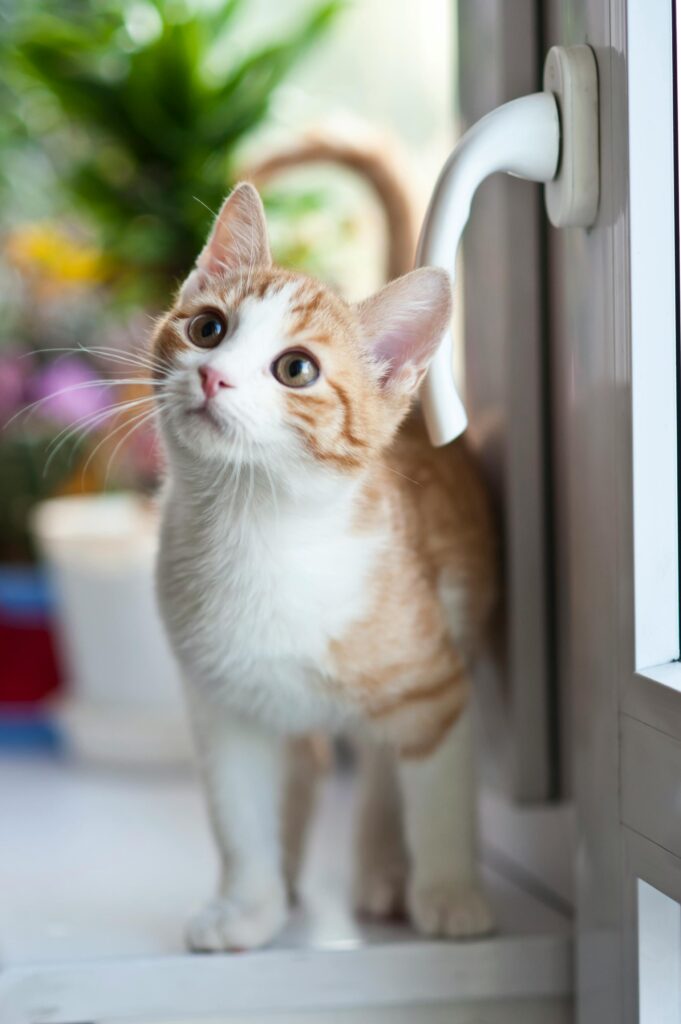
Puppies:
- Potty Training: This can be one of the most time-consuming aspects of raising a puppy. While kittens usually start using the litter box early, puppies need constant supervision and patience to be house-trained.
- Feeding: Puppies also need to be fed multiple times a day, but you’ll need to manage portion control more carefully since puppies tend to overeat.
- Grooming: Puppies, especially certain breeds, may require regular baths, nail trims, and brushing to maintain their coats.
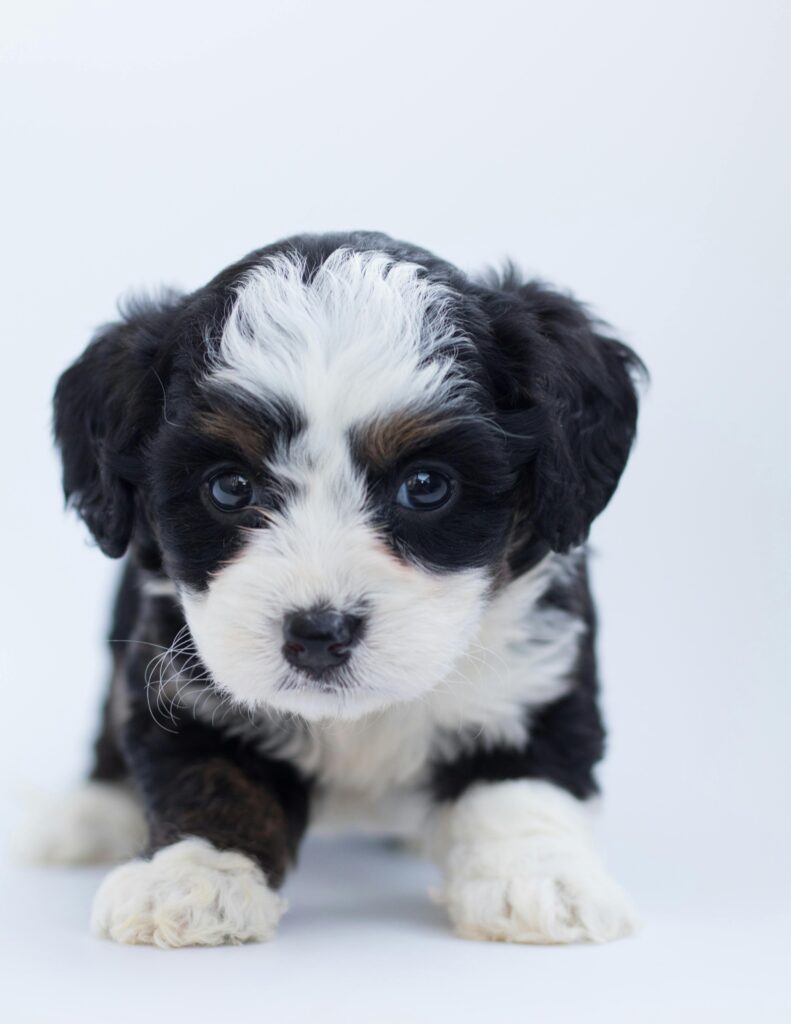
2. Training and Behavior: Who’s Easier to Train?
Training is another area where kittens and puppies differ. This is often one of the first concerns people have when bringing either pet home. In my case, training my puppy required a lot more time, consistency, and energy compared to my kitten. Discover if the American Eskimo is a guard dog and learn about its suitability for protecting your home.
Let’s look at the differences in training:
Kittens:
- Litter Training: Kittens instinctively know to use a litter box, so training them is usually a non-issue. All they need is a clean, accessible box, and they’ll figure it out.
- Basic Training: Kittens can be trained to respond to commands like “sit” or “come,” but they tend to be less motivated than puppies. Training them can be fun, but you need to keep it short and simple.
- Scratching: Kittens are natural scratchers. While you can train them to use scratching posts, it requires patience and consistency. If you don’t set up proper scratching areas, you may end up with damaged furniture.
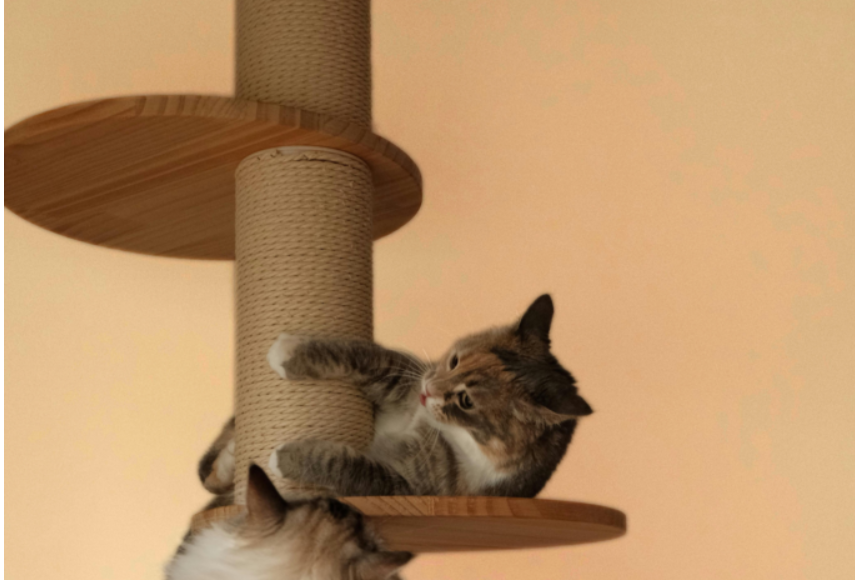
Puppies:
- Potty Training: This is a major hurdle for many first-time puppy owners. Puppies don’t instinctively know where to go, so they require consistent potty breaks and training to develop good bathroom habits.
- Commands and Tricks: Puppies are eager to please and can learn new tricks and commands relatively quickly. However, training them requires more attention and repetition than kittens.
- Chewing: Puppies love to chew, and this can sometimes lead to destructive behavior. It’s important to provide them with plenty of chew toys and correct them when they start chewing on furniture or shoes.
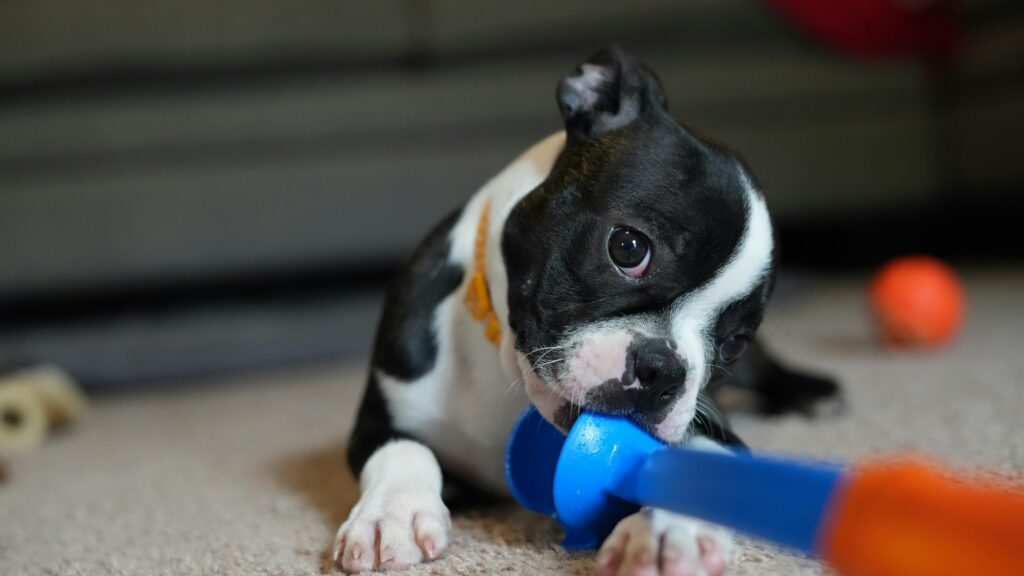
3. Energy Levels: Are Kittens More Low-Key Than Puppies?
If you’re looking for a more laid-back pet, you might be inclined to think that kittens are easier because they generally sleep more than puppies. However, the energy levels of each can depend on their age, breed, and individual personalities.
Kittens:
- Playfulness: Kittens are very playful, but their bursts of energy tend to be short-lived. They often nap between play sessions, which gives you some time to relax.
- Exploration: Kittens are curious, and they love exploring every nook and cranny. While this is fun, it can also be a challenge if you have a lot of breakable items in your home.
- Quiet Time: Kittens are generally quieter than puppies, and you won’t hear them barking, which is a huge perk for apartment dwellers or anyone who prefers peace and quiet.
Puppies:
- Constant Energy: Puppies, especially in the first few months, have seemingly endless energy. They require lots of physical exercise to tire them out, which means daily walks, runs, or play sessions.
- Attention: Puppies crave attention, and they often want to be with you at all times. This can be exhausting, especially if you’re trying to get work done at home.
- Barking: Puppies tend to bark a lot, especially when they’re excited, scared, or anxious. Early training can help curb excessive barking, but it takes time and patience.
4. Cost: Which Pet Is More Expensive to Raise?
Both kittens and puppies can be expensive to raise, but when I looked at the costs, I found that puppies tend to be the more expensive option, especially in the early months. Let’s break it down. Learn about the size collar for an American Eskimo to ensure a perfect fit and comfort for your dog.
Kittens:
- Food: Kittens are generally less expensive to feed than puppies, as they don’t require as much food.
- Vet Visits: Kittens need vaccinations and health checks, but they usually require fewer vet visits than puppies.
- Supplies: The basics for kittens (litter box, food bowls, toys, scratching posts) tend to be less expensive compared to puppy supplies like crates, training pads, and beds.
Puppies:
- Food: Puppies eat more, which can increase the cost of feeding them.
- Vet Visits: Puppies require more vaccinations, check-ups, and preventative care than kittens, so vet bills can quickly add up.
- Training: If you hire a professional dog trainer, the costs can add up, especially during the early months when you’re house-training.
5. Longevity: Which Pet Lives Longer?
This might not seem like a big factor when considering which pet is easier, but it’s something to think about in the long term. On average, kittens tend to live longer than puppies.
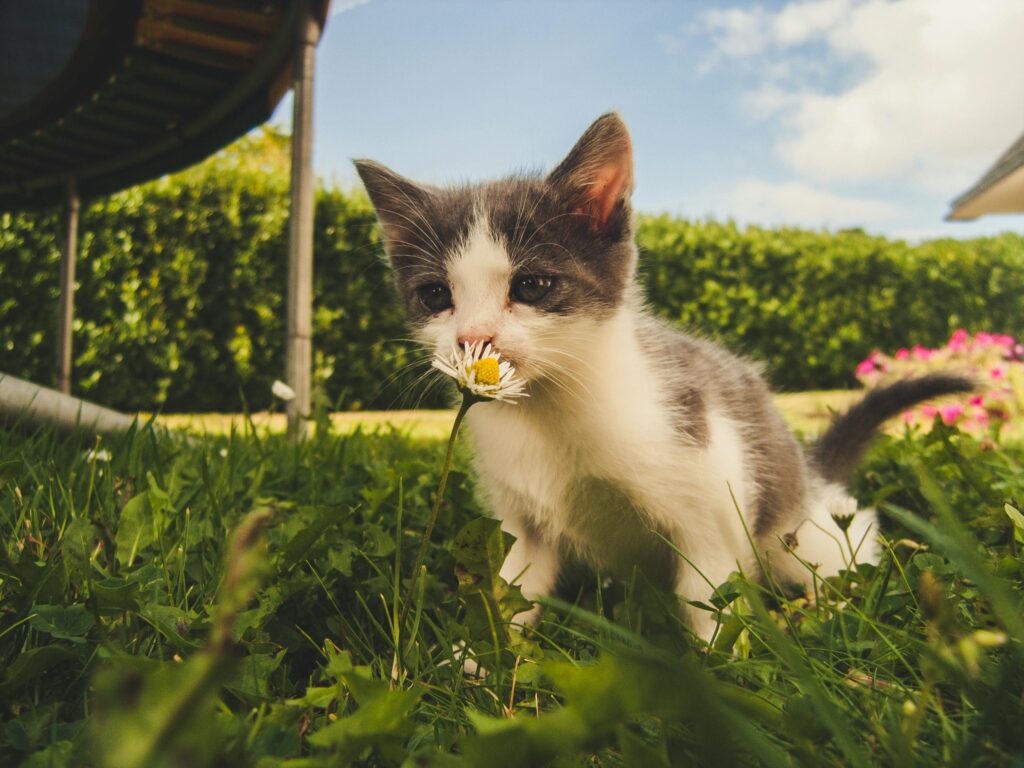
Kittens:
- Life Expectancy: Indoor cats typically live around 12 to 16 years, and some can even live into their 20s with proper care.
- Health Care: Kittens generally stay healthy for most of their lives, provided they’re properly vaccinated and fed a balanced diet.
Puppies:
- Life Expectancy: The average lifespan of a dog varies greatly depending on their breed. Smaller dogs tend to live longer (12-16 years), while larger breeds may live 8-12 years.
- Health Care: Dogs are more prone to certain health issues as they age, particularly large breeds. Regular vet visits and preventive care can help manage these risks.
Conclusion: Are Kittens Easier Than Puppies?
In my personal experience, kittens tend to be easier than puppies in several aspects, especially when it comes to maintenance, behavior, and energy levels. Kittens are naturally more independent, require less constant attention, and tend to be easier to litter train.
However, puppies have their own unique appeal. They can be trained to perform more complex tasks, and they form deep bonds with their owners. While they require more energy and patience, the rewards of raising a well-behaved dog are immeasurable. Hope so, now your question is answered: Are kittens easier than puppies?
Ultimately, whether a kitten or a puppy is easier depends on your lifestyle, time commitment, and what you’re looking for in a pet. If you’re ready for the challenge and enjoy being active, a puppy might be the right fit.
But if you’re looking for a more low-maintenance companion, a kitten could be a better choice. Whatever you decide, both pets will bring immense joy and love into your life. Discover why Afghan Hound collars are wide by exploring the unique characteristics of this breed and how wide collars enhance their comfort and style.



